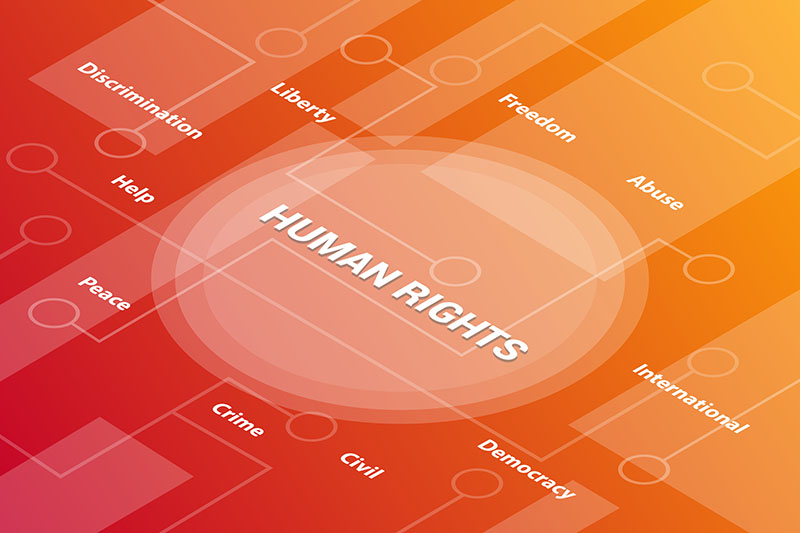In November, I wrote about Muslim Uyghurs, held in forced labor camps in China, that have become front-page news. For companies importing from China into the U.S., any products made by Uyghurs or have any parts or content made or processed by Uyghurs is finding itself in a very difficult situation.
In December, President Biden signed the bi-partisan Uyghur Forced Labor Prevention Act, restating America’s long-term commitment to combat forced labor. This new legislation has broad ramifications for global supply chains. The new order means that every importer of goods from China must certify that there is no Uyghur content in the imported products including raw materials and labor.
U.S. Customs is charged with enforcement of the new law, starting with the presumption that all products coming from Xinjian Province are made with forced labor and are banned from being imported. But the legislation goes even further than that. Human rights organizations have discovered that Uyghur workers are now being sent to factories across China to fill worker shortages and to take advantage of low-cost labor.
Distinguishing Uyghur workers’ labor from other workers’ labor in your supplier factories may be difficult if not impossible. So determining if there is Uyghur content in your imported products is going to be a real challenge.
It’s not exactly like companies can just turn off raw materials, parts, subassemblies, and finished products coming from China. So many of these parts and products can only be sourced from China because they are manufactured nowhere else in the world or it is cost-prohibitive to source elsewhere. In fact, despite the penalty tariffs and the trade war started by the Trump administration, imports from China have increased over the past few years.
Forced labor imports have always been banned
U.S. Customs has always banned imports made with forced labor or prison labor. However, the issue with products from Xinjiang including tomato products, cotton, textiles, electronics, and other goods reaches deeper into supply chains. Cotton grown by forced labor in Xinjiang is sold to Chinese textile producers in other parts of China, which in turn sell to Chinese apparel and other manufacturers that may then sell the finished product to international brands. The supply chains are long and complicated, but if there is Uyghur content or labor involved, the product is now banned from importing into the U.S.
Recent reports have revealed that many of these Uyghurs are being rented as forced labor to Chinese manufacturers producing products for well-known American companies. Most of the American companies say they had no prior knowledge of this forced-labor issue. Even companies like Apple and Nike, whose global supply chains have some of the highest labor standards in the world, discovered forced labor in some of their contracted factories.
What should you do now?
The pandemic exposed the necessity for careful control over your supply chains, but controlling forced labor in your supply chains requires a whole new level of scrutiny. It is not enough to initially audit and certify your factories and suppliers. Active oversight must be an ongoing effort with in-depth reviews of labor practices.
Quarterly supplier audits used to be sufficient, but not anymore. Tier 1, tier 2, and tier 3 (maybe more) suppliers need to be audited in detail to uncover forced labor parts and labor content. It’s time to be more vigilant than ever. Supply chain managers should visit the factories together with the auditors. You may want to engage a trusted auditor in China to visit the factories often, in between quarterly audits.
To ensure that global supply chains are ethical, safe, and lawful requires knowing all links in the chain, and being vigilant in your oversight.
SC
MR


Latest Supply Chain News
- Few executives believe their supply chains can respond quickly to disruptions
- Technology’s role in mending supply chain fragility after recent disruptions
- Tech investments bring revenue increases, survey finds
- Survey reveals strategies for addressing supply chain, logistics labor shortages
- Israel, Ukraine aid package to increase pressure on aerospace and defense supply chains
- More News
Latest Podcast

 Explore
Explore
Latest Supply Chain News
- Few executives believe their supply chains can respond quickly to disruptions
- Technology’s role in mending supply chain fragility after recent disruptions
- Tech investments bring revenue increases, survey finds
- Survey reveals strategies for addressing supply chain, logistics labor shortages
- Israel, Ukraine aid package to increase pressure on aerospace and defense supply chains
- How CPG brands can deliver on supplier diversity promises
- More latest news
Latest Resources

Subscribe

Supply Chain Management Review delivers the best industry content.

Editors’ Picks




